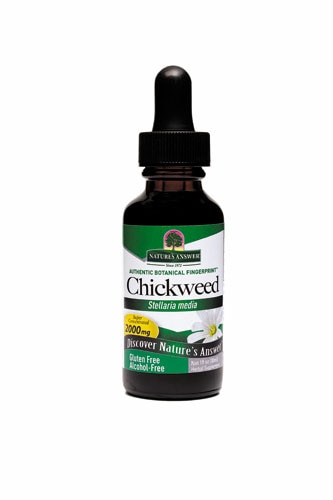Think herbs, and the dozen in your kitchen cabinet come to mind. But there are hundreds, if not thousands, beyond basil that can do good things for you.
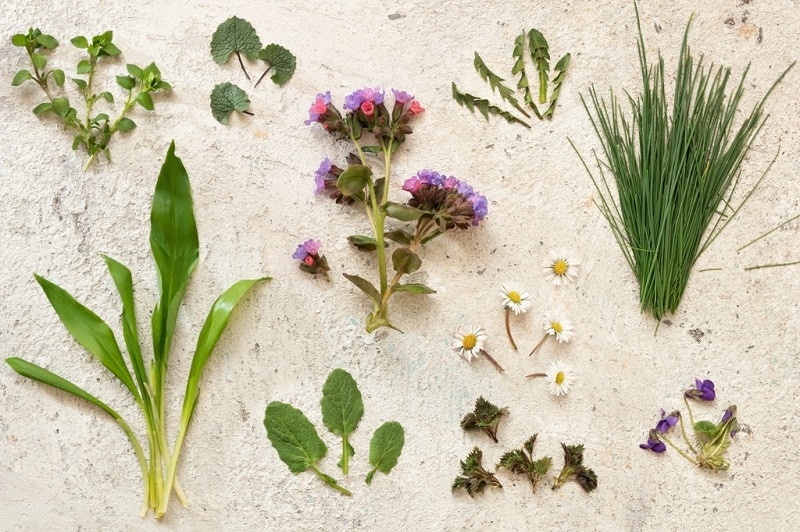
“Plants transform the nutrients in the earth into substances that our bodies can utilize,” says Brigitte Mars, who has authored numerous
books on herbs, including
The Desktop Guide to Herbal Medicine and
Healing Herbal Teas.
Take
minerals, for example. They come mainly from rocks, soil and water. In turn, minerals end up in plants (and animals that eat plants). You're not going to eat rocks or soil, so you gain access to those minerals through the plants or animals you eat.
Of course, different herbs have different properties and different chemical constituents, Mars notes. That means each herb offers its own suite of benefits.
For example, horseradish dilates the bronchial tubes and can help with asthma, Mars says. “When you have wasabi, you feel all of the sudden,
Wow I can breathe more deeply—you don't need to go in a lab to know that really did something.” And raspberry leaf—high in calcium, magnesium and iron—can help regulate menstrual cycles and ease perimenopausal and menopausal symptoms. The list goes on.
What's more, “different parts of the plants target different parts of the body,” Mars says. And certain herbs are best consumed or prepared certain ways: You might eat some herbs whole (oregano leaves on
spaghetti, for example), steep others in water that varies from cold to boiling (
pro tip: leaves with essential oils shouldn't be boiled or you’ll lose those oils) and create ointments out of yet other herbs. Be sure to keep safety front and center as you explore: If you want to try an herb you've never had, first consult at least three reputable books on herbs, Mars recommends. For example,
black cohosh can help with hot flashes and anxiety, “but it's also an herb that should not be used by pregnant women,” she says.
It doesn't matter much if you use
fresh or dried herbs, as far as benefits go, Mars says. “Really, all you're getting rid of is the water weight, if they're dried properly,” Mars says. In turn, cooking with fresh herbs will add moisture to your dish, whereas dried herbs won’t.
Curious about herbs beyond your common go-tos? Three of Mars's favorites:
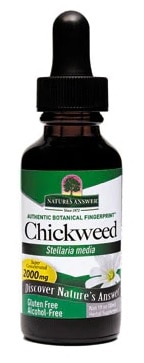
As its name says, this is a weed, but to a beneficial end.
“The plants that survive adversity … you have to give them credit,” Mars says. “They are survivors; they are going to help us be survivors.”
Chickweed is high in lecithin and has phosphorus, calcium, copper and zinc. It helps with brain function and is used to help skin conditions such as acne and eczema. Add it to juices, salads and soups, she says.
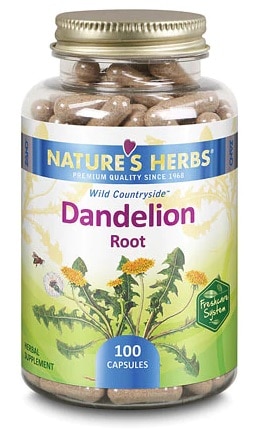
Yep, this is the aggressive yellow-flowered bugger that pops up in grass the land over.
Dandelion leaves are very nutritious, Mars says, high in vitamins A and K. “Wouldn't it be great to make a salad from something that was growing five minutes ago rather than romaine shipped in days ago from California?”
Dandelions roots are anti-fungal, anti-inflammatory and antiseptic, and they're good for the liver and for depression, she says.
Dandelion flowers are high in lutein, which is good for our eyes.
“The herbs people consider weeds are some of the best,” Mars says. “It doesn't have to come from the high regions of Tibet to medicinal.”
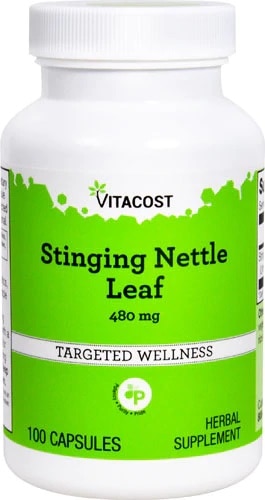
It might be prickly, but it offers lots of benefits. “It builds up the blood,” Mars says. “It's high in nutrients the blood needs,” such as iron and folate. It also supports
prostate function and helps treat urinary tract disorders, studies show.
Journalist Mitra Malek writes and edits wellness-related content, including for Yoga Journal.
 “Plants transform the nutrients in the earth into substances that our bodies can utilize,” says Brigitte Mars, who has authored numerous books on herbs, including The Desktop Guide to Herbal Medicine and Healing Herbal Teas.
Take minerals, for example. They come mainly from rocks, soil and water. In turn, minerals end up in plants (and animals that eat plants). You're not going to eat rocks or soil, so you gain access to those minerals through the plants or animals you eat.
Of course, different herbs have different properties and different chemical constituents, Mars notes. That means each herb offers its own suite of benefits.
For example, horseradish dilates the bronchial tubes and can help with asthma, Mars says. “When you have wasabi, you feel all of the sudden, Wow I can breathe more deeply—you don't need to go in a lab to know that really did something.” And raspberry leaf—high in calcium, magnesium and iron—can help regulate menstrual cycles and ease perimenopausal and menopausal symptoms. The list goes on.
What's more, “different parts of the plants target different parts of the body,” Mars says. And certain herbs are best consumed or prepared certain ways: You might eat some herbs whole (oregano leaves on spaghetti, for example), steep others in water that varies from cold to boiling (pro tip: leaves with essential oils shouldn't be boiled or you’ll lose those oils) and create ointments out of yet other herbs. Be sure to keep safety front and center as you explore: If you want to try an herb you've never had, first consult at least three reputable books on herbs, Mars recommends. For example, black cohosh can help with hot flashes and anxiety, “but it's also an herb that should not be used by pregnant women,” she says.
It doesn't matter much if you use fresh or dried herbs, as far as benefits go, Mars says. “Really, all you're getting rid of is the water weight, if they're dried properly,” Mars says. In turn, cooking with fresh herbs will add moisture to your dish, whereas dried herbs won’t.
Curious about herbs beyond your common go-tos? Three of Mars's favorites:
“Plants transform the nutrients in the earth into substances that our bodies can utilize,” says Brigitte Mars, who has authored numerous books on herbs, including The Desktop Guide to Herbal Medicine and Healing Herbal Teas.
Take minerals, for example. They come mainly from rocks, soil and water. In turn, minerals end up in plants (and animals that eat plants). You're not going to eat rocks or soil, so you gain access to those minerals through the plants or animals you eat.
Of course, different herbs have different properties and different chemical constituents, Mars notes. That means each herb offers its own suite of benefits.
For example, horseradish dilates the bronchial tubes and can help with asthma, Mars says. “When you have wasabi, you feel all of the sudden, Wow I can breathe more deeply—you don't need to go in a lab to know that really did something.” And raspberry leaf—high in calcium, magnesium and iron—can help regulate menstrual cycles and ease perimenopausal and menopausal symptoms. The list goes on.
What's more, “different parts of the plants target different parts of the body,” Mars says. And certain herbs are best consumed or prepared certain ways: You might eat some herbs whole (oregano leaves on spaghetti, for example), steep others in water that varies from cold to boiling (pro tip: leaves with essential oils shouldn't be boiled or you’ll lose those oils) and create ointments out of yet other herbs. Be sure to keep safety front and center as you explore: If you want to try an herb you've never had, first consult at least three reputable books on herbs, Mars recommends. For example, black cohosh can help with hot flashes and anxiety, “but it's also an herb that should not be used by pregnant women,” she says.
It doesn't matter much if you use fresh or dried herbs, as far as benefits go, Mars says. “Really, all you're getting rid of is the water weight, if they're dried properly,” Mars says. In turn, cooking with fresh herbs will add moisture to your dish, whereas dried herbs won’t.
Curious about herbs beyond your common go-tos? Three of Mars's favorites:
 As its name says, this is a weed, but to a beneficial end.
“The plants that survive adversity … you have to give them credit,” Mars says. “They are survivors; they are going to help us be survivors.”
Chickweed is high in lecithin and has phosphorus, calcium, copper and zinc. It helps with brain function and is used to help skin conditions such as acne and eczema. Add it to juices, salads and soups, she says.
As its name says, this is a weed, but to a beneficial end.
“The plants that survive adversity … you have to give them credit,” Mars says. “They are survivors; they are going to help us be survivors.”
Chickweed is high in lecithin and has phosphorus, calcium, copper and zinc. It helps with brain function and is used to help skin conditions such as acne and eczema. Add it to juices, salads and soups, she says.
 Yep, this is the aggressive yellow-flowered bugger that pops up in grass the land over.
Dandelion leaves are very nutritious, Mars says, high in vitamins A and K. “Wouldn't it be great to make a salad from something that was growing five minutes ago rather than romaine shipped in days ago from California?”
Dandelions roots are anti-fungal, anti-inflammatory and antiseptic, and they're good for the liver and for depression, she says. Dandelion flowers are high in lutein, which is good for our eyes.
“The herbs people consider weeds are some of the best,” Mars says. “It doesn't have to come from the high regions of Tibet to medicinal.”
Yep, this is the aggressive yellow-flowered bugger that pops up in grass the land over.
Dandelion leaves are very nutritious, Mars says, high in vitamins A and K. “Wouldn't it be great to make a salad from something that was growing five minutes ago rather than romaine shipped in days ago from California?”
Dandelions roots are anti-fungal, anti-inflammatory and antiseptic, and they're good for the liver and for depression, she says. Dandelion flowers are high in lutein, which is good for our eyes.
“The herbs people consider weeds are some of the best,” Mars says. “It doesn't have to come from the high regions of Tibet to medicinal.”
 It might be prickly, but it offers lots of benefits. “It builds up the blood,” Mars says. “It's high in nutrients the blood needs,” such as iron and folate. It also supports prostate function and helps treat urinary tract disorders, studies show.
Journalist Mitra Malek writes and edits wellness-related content, including for Yoga Journal.
It might be prickly, but it offers lots of benefits. “It builds up the blood,” Mars says. “It's high in nutrients the blood needs,” such as iron and folate. It also supports prostate function and helps treat urinary tract disorders, studies show.
Journalist Mitra Malek writes and edits wellness-related content, including for Yoga Journal.



